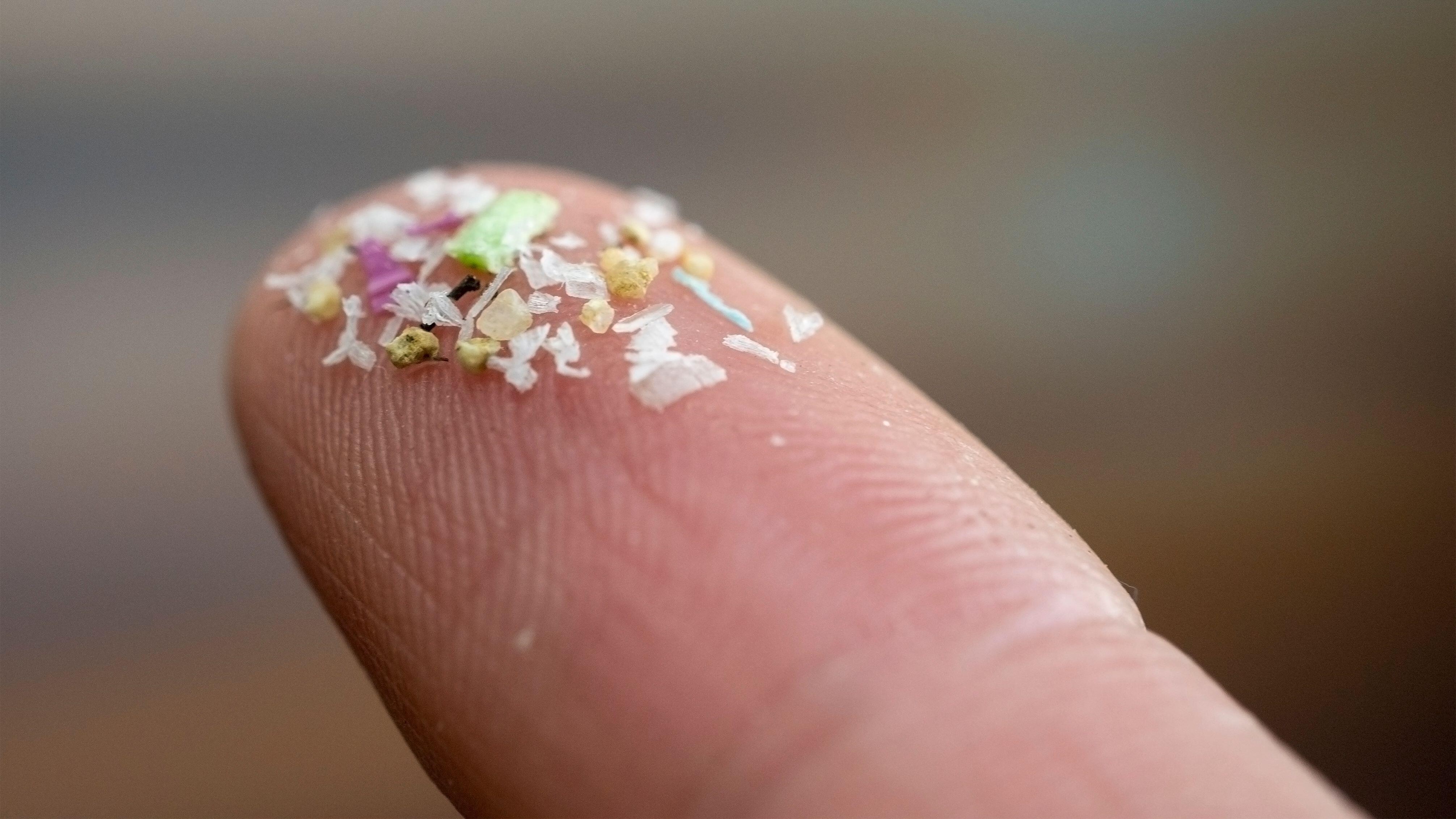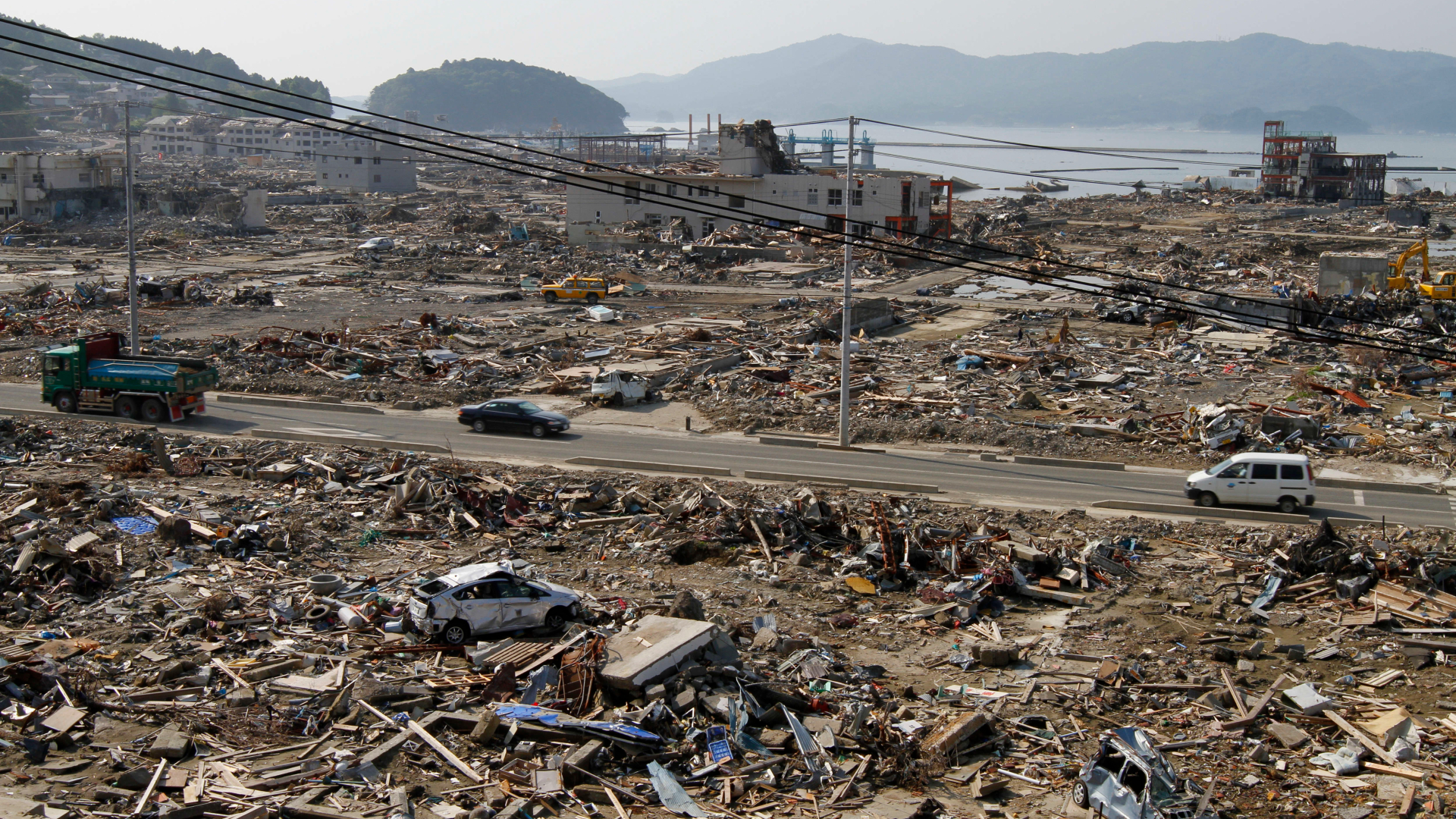Humans inhale a staggering amount of microplastic every week. Here's where it ends up.
Researchers used a computer model to find where the bits of microplastics inhaled by humans end up. What they found is troubling.

Get the world’s most fascinating discoveries delivered straight to your inbox.
You are now subscribed
Your newsletter sign-up was successful
Want to add more newsletters?

Delivered Daily
Daily Newsletter
Sign up for the latest discoveries, groundbreaking research and fascinating breakthroughs that impact you and the wider world direct to your inbox.

Once a week
Life's Little Mysteries
Feed your curiosity with an exclusive mystery every week, solved with science and delivered direct to your inbox before it's seen anywhere else.

Once a week
How It Works
Sign up to our free science & technology newsletter for your weekly fix of fascinating articles, quick quizzes, amazing images, and more

Delivered daily
Space.com Newsletter
Breaking space news, the latest updates on rocket launches, skywatching events and more!

Once a month
Watch This Space
Sign up to our monthly entertainment newsletter to keep up with all our coverage of the latest sci-fi and space movies, tv shows, games and books.

Once a week
Night Sky This Week
Discover this week's must-see night sky events, moon phases, and stunning astrophotos. Sign up for our skywatching newsletter and explore the universe with us!
Join the club
Get full access to premium articles, exclusive features and a growing list of member rewards.
Editor's Note: The headline and lede of this story were updated on March 13, 2024 at 1:40 p.m. E.S.T. to remove reference to the total amount of plastic inhaled by humans every week. Researchers originally estimated that humans ingest a credit cards' worth, but this was a miscalculation; it's actually much lower than that.
Humans may be inhaling a staggering amount of toxic microplastic every week, and for the first time scientists have worked out where it ends up in your body.
In 2019, a team of scientists estimated that up to 16.2 bits of microplastic enter our airways every hour. Now, researchers have built on these findings to figure out how the plastic moves around our respiratory systems.
Microplastics are tiny chunks of plastic debris measuring less than 0.2 inch (5 millimeters) long, according to the National Oceanic and Atmospheric Administration (NOAA). These broken-down remnants of industrial waste and consumer goods are impossible to avoid; they can be found across the ocean and the atmosphere, inside bottled water and even in human poop.
Related: Monet and Turner's atmospheric landscapes actually depicted air pollution, new study finds
There have been few studies into how toxic microplastics impact human health, especially respiratory health. However, recent studies suggest these tiny particles could pose serious health problems. Now, researchers have used a computer model to find the regions of our airways most impacted by breathing in microplastics. The scientists published their findings June 13 in the journal Physics of Fluids.
"For the first time, in 2022, studies found microplastics deep in human airways, which raises the concern of serious respiratory health hazards,” first author Mohammad S. Islam, a senior research fellow at the University of New South Wales, Sydney, said in a statement.
Get the world’s most fascinating discoveries delivered straight to your inbox.
The scientists built a computer model to analyze where the tiny chunks tend to travel inside our airways, and where they get deposited.
By analyzing this circulation under slow- and fast-breathing conditions with three possible plastic shapes (spherical, tetrahedral, and cylindrical), the researchers found that the biggest chunks of microplastic — those measuring about 5.56 microns (one-seventieth the breadth of a human hair) — were the ones most likely to get lodged. The places these larger chunks tended to go were in the upper airways, such as in the nasal cavity and the back of the throat.
The full health impacts of microplastics on the human body are still unknown. However, microplastics have been shown to kill human cells, and cause bowel inflammation and reductions to fertility in mice.
Microplastics can also carry viruses, bacteria and other hazardous chemicals, which hitchhike on the plastic’s microscopic surfaces.
The researchers say their next steps will be to investigate how the plastics are deposited inside human lungs, taking into account factors such as humidity and temperature. They noted that microplastics are becoming increasingly ubiquitous.
"Millions of tons of these microplastic particles have been found in water, air and soil. Global microplastic production is surging, and the density of microplastics in the air is increasing significantly," Islam said.
Editor's Note: This story was updated on June 25, 2025 at 8:40 a.m. E.S.T. to replace an image of credit cards, which may have added to the confusion as to the total amount of microplastics inhaled.

Ben Turner is a U.K. based writer and editor at Live Science. He covers physics and astronomy, tech and climate change. He graduated from University College London with a degree in particle physics before training as a journalist. When he's not writing, Ben enjoys reading literature, playing the guitar and embarrassing himself with chess.
 Live Science Plus
Live Science Plus










